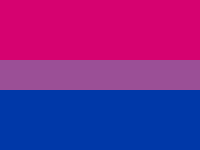Whether you know it or not, rape, incest and sexual assault affect everyone. If you haven't been a victim yourself, someone you know and care about almost certainly has. These are crimes that are woefully underreported, by male survivors most of all:
Many people don't take male sexual assault seriously. This is one of the reasons why male victims have a difficult time reporting what happened and why the rates of male sexual assault are thought to be significantly underreported. If a male survivor's friends think that male sexual assault is a joke, he will feel isolated and afraid to tell anyone. Sexual assault is a painful, traumatic experience for any victim.The National Center for PTSD elaborates:
There is a bias in our culture against viewing the sexual assault of boys and men as prevalent and abusive. Because of this bias, there is a belief that boys and men do not experience abuse and do not suffer from the same negative impact that girls and women do. However, research shows that at least 10% of boys and men are sexually assaulted and that boys and men can suffer profoundly from the experience. Because so few people have information about male sexual assault, men often suffer from a sense of being different, which can make it more difficult for men to seek help.There is some controversy over statistics regarding the prevalence of male versus female sexual assault in this country. I will not address the controversy here, as I have not done enough research to speak as an authority on this issue. Most statistics I have found indicate that women are victims of rape and sexual assault much more frequently than men. But it is clear that rape, sexual assault, and other forms of abuse* affect all genders. And sexual violence or abuse of anyone is unacceptable.
Here are some ways you can help a loved one who has been raped or sexually assaulted. Most of these guidelines apply or can be adapted to help a victim/survivor of physical assault or domestic violence. Self-care is also imperative, though often difficult. Please see the links near the bottom of the webpage for some guidelines regarding self-care, for friends and family members as well as for survivors.
If you have been a victim of rape or sexual assault, you can get help by calling the National Sexual Assault Hotline at 1-800-656-HOPE(4673). If you are currently a victim of domestic violence and need help, you can call the National Domestic Violence Hotline at 1-800-799-SAFE(7233). (Please keep in mind that computer and phone use can be monitored.) You are not alone, and you have nothing to be ashamed of. You need not listen to the voices of abusers anymore.
* WARNING: This video contains graphic, disturbing images of real violence, which may be triggering to some. If you have been a victim of assault, battering, or other forms of domestic violence and have symptoms of post-traumatic stress, please do not watch this video unless you are in a safe place by yourself or with people you trust, and are confident that you can watch it without being triggered. If you feel triggered after watching this video, try watching something cute and fuzzy to help you calm down. If you experience a flashback while watching this video and do not feel safe, please call a trusted friend or a crisis hotline such as the Life Crisis Line in St. Louis, MO (314-647-4357).






